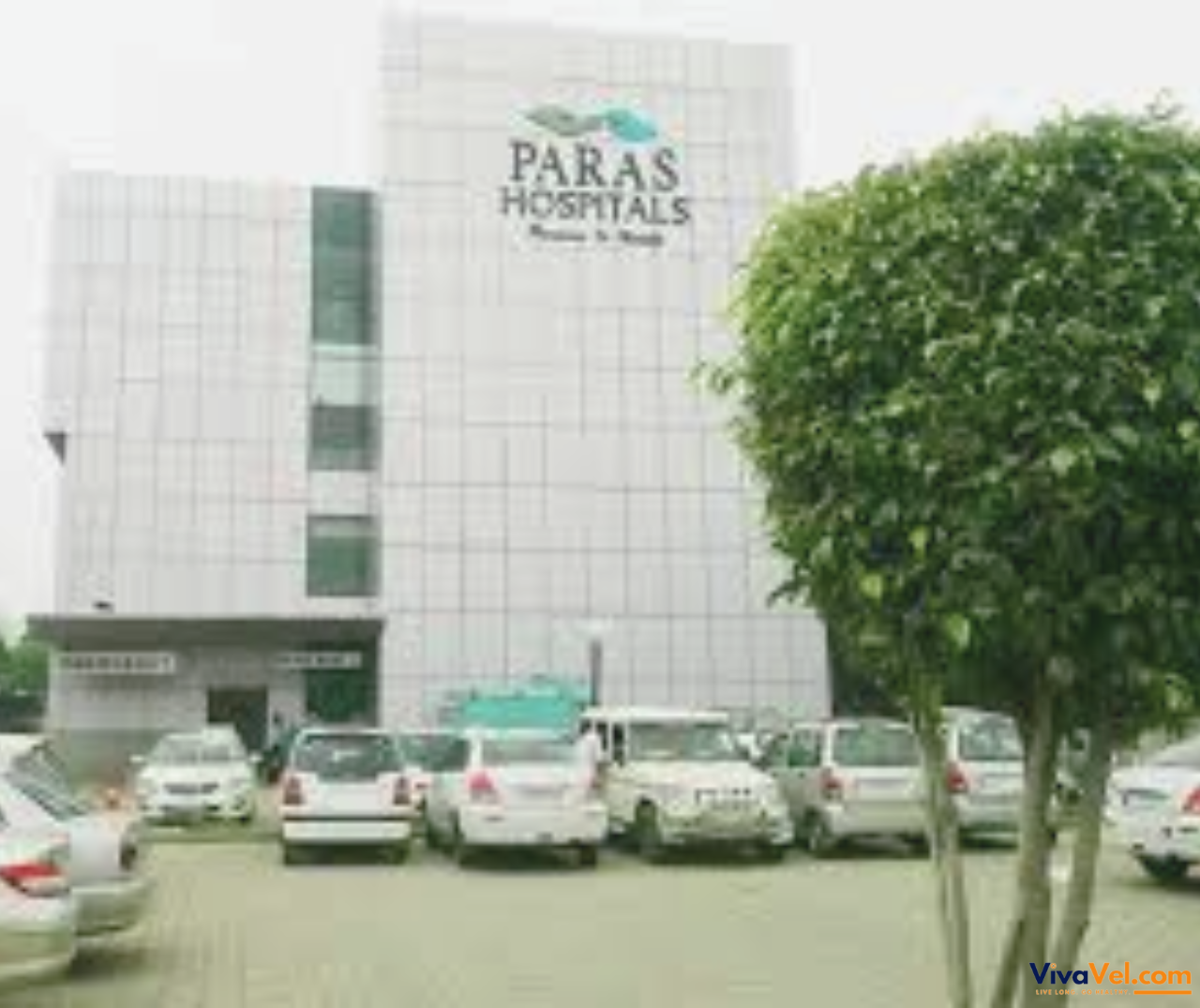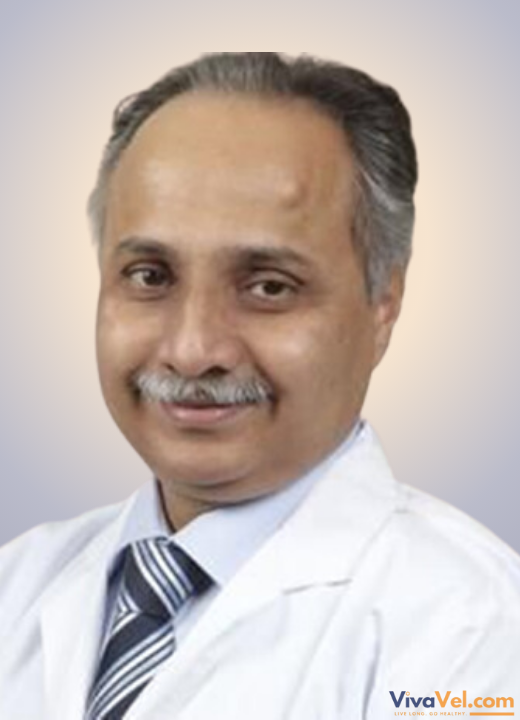info@vivavel.com
+919818262686
+919818262686
 info@vivavel.com
info@vivavel.com +919818262686
+919818262686A PET scan (Positron Emission Tomography) is a medical imaging test that helps doctors see how your organs and tissues are working. It uses a small amount of radioactive material, which is injected into your body. This material helps highlight areas where cells are more active than normal.
Doctors often use a PET scan to detect diseases like cancer, heart conditions, or brain disorders. Cancer cells, for example, tend to be more active, so they show up clearly on the scan. During the test, a special camera takes pictures of the radioactive material in your body, showing which parts are functioning normally and which aren't.
A PET scan is painless and usually takes about an hour. It's safe because the amount of radiation used is very small. Doctors can use the results to plan treatments, check how well current treatments are working, or see how advanced a disease is.
By using a PET scan, doctors can get a clearer picture of your health, helping them make more accurate diagnoses. Regular use of PET scans can greatly improve the chances of detecting serious health conditions early.
 A PET scan is not a treatment but a diagnostic tool, so it is recommended when someone has signs of certain diseases, such as:
A PET scan is not a treatment but a diagnostic tool, so it is recommended when someone has signs of certain diseases, such as:
Unexplained weight loss or fatigue (could indicate cancer)
Severe, persistent headaches (may point to brain disorders)
Chest pain or shortness of breath (possible heart disease)
Seizures or memory loss (brain conditions)

 A PET scan is typically used when doctors want to:
A PET scan is typically used when doctors want to:
Detect cancer: Helps in finding cancer, determining its extent of spread, or assessing whether treatment is effective.
Diagnose heart problems: Evaluates blood flow to the heart or damage after a heart attack.
Examine brain disorders: Utilized for conditions such as epilepsy, Alzheimer's disease, or brain tumors.
Monitor treatment progress: This helps to assess how well treatments, such as chemotherapy or radiation, are working.
 You may need a PET scan if your doctor suspects:
You may need a PET scan if your doctor suspects:
Cancer: Tumors or abnormal growths anywhere in the body.
Heart disease: To assess damage from heart attacks or blockages.
Brain disorders: Conditions like Alzheimer's disease, seizures, or tumors.
Unexplained symptoms: Ongoing symptoms without a clear cause after other tests.
A radioactive tracer, which is a substance that emits a small amount of radiation, is injected into your body. The tracer then travels to the area of concern, such as the brain, heart, or cancer cells. Active cells, such as cancer cells, absorb more of the tracer, and the PET scanner detects this activity, producing a detailed image.
 Do's:
Do's:
Follow pre-scan instructions: Usually, you'll need to fast for a few hours.
Drink plenty of water: It helps flush out the radioactive tracer after the scan.
Inform your doctor about all medications: Some medications can interfere with the scan.
Inform your doctor if pregnant: Radiation may pose risks to an unborn baby.
 Don'ts:
Don'ts:
Avoid strenuous exercise before the scan, as it may affect the results.
Don't wear metal objects: This can interfere with the scanning process.
Don't skip meals: After the scan, you can resume eating unless instructed otherwise.
Disclaimer:
Our medical content authors have diligently gathered and synthesized information on this topic to offer valuable insights to our readers. Drawing from a range of reputable medical journals and health resources, this content aims to enhance understanding of the subject. It's essential to remember that while this information is informative, it should not replace personalized consultation or treatment from a qualified healthcare professional. For further details, please refer to our Editorial Policy.
For this topic, our authors used some of the following resources:
Cleveland Clinic | PET Scan
Mayoclinic | Positron emission tomography scan
Healthdirect | PET Scan
MedlinePlus | PET Scan





![]() Pusa Road, Radha Soami Satsang, Rajendra Place New Delhi, 110005 India
Pusa Road, Radha Soami Satsang, Rajendra Place New Delhi, 110005 India



![]() Budena Village, Sector 86, Faridabad, Haryana 121002, India
Budena Village, Sector 86, Faridabad, Haryana 121002, India



![]() Golf Course Rd, Parsvnath Exotica, DLF Phase 5, Sector 53, Gurugram, Haryana Gurgaon, 122022 India
Golf Course Rd, Parsvnath Exotica, DLF Phase 5, Sector 53, Gurugram, Haryana Gurgaon, 122022 India



![]() C-1, Sushant Lok- 1, Sector-43, Phase- I, Gurugram, Haryana, 122002
C-1, Sushant Lok- 1, Sector-43, Phase- I, Gurugram, Haryana, 122002


Dr. Pooja Agarwal stands out as one of the oncologists in Kolkata, specializing in breast cancer surgery. With over 10 years of experience, she has earned a reputatio...

Dr. Harsh Vardhan Atreya is a prominent Consultant Medical & Hemato-Oncologist specializing in Bone Marrow Transplantation. With training from esteemed institutio...

Dr. Imran Khan has joined Fortis Escorts in Okhla Road, New Delhi, as an Associate Consultant in Medical Oncology. He brings over 12 years of experience in oncology. ...

Dr. Harit K Chaturvedi heads the Max Institute of Cancer Care. He has been with Max Healthcare since 2009 and has worked hard to create one of the best cancer treatme...

Dr. Asit Arora is a highly regarded Surgical Gastroenterologist specializing in Gastrointestinal and Hepat-pancreato-biliary (HPB) surgery. He is based in the Delhi N...

Dr. Nikhil Agrawal is a distinguished Gastrointestinal (GI) and Hepato-Pancreato-Biliary (HPB) Surgical Oncologist, serving as the Director of GI-HPB Surgery and Oncology at ...
Treatment Plan & Cost within 2 days
